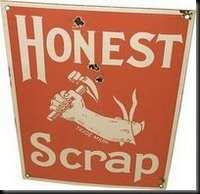While listening today to an older Joan Baez album, a flood of memories returned about that period in my life. It is, indeed, a rather sad note that little has really changed, but the herd of humanity holds on tightly to its collective superiority.
Joan's beautiful and haunting rendition of Phil Och's tune There But for Fortune is my first remembrance of this remarkable woman's talents. At this time in my life, 11 years old, I would run home from school to read Life magazine's pictorial stories of the day (which I had been doing for many years), then sit down with my first guitar trying to make sense of the words of Baez's songs in light of the political and social background of the muddied world. Over and over I would play this song, learning the picking style, and discerning the significance of vocal and musical dynamic against lyrical content. Even at 11 years old, the meaning of the song was hardly lost on me, and this is incredibly beautiful:
Show me the prisoner whose life has gone stale
And I'll show you (a) young man with so many reasons why
There but for fortune go you or I.
Show me the alley, show me the train
Show me the hobo who sleeps out in the rain
And I'll show you (a) young man with so many reasons why
There but for fortune go you or I.
Show me the whiskey stains on the floor
Show me the drunkard as he stumbles out the door
And I'll show you young man with so many reasons why
There but for fortune go you or I.
Show me the country where the bombs had to fall
Show me the ruins of the buildings once so tall
And I'll show you (a) young land with so many reasons why
I was probably the only child from a divorced family in the entire school and a latch-key kid at that. For most of my young life, I really suffered from lack of family, an only child. Now, I realize that it was this seeming social disparity that taught me to think for myself and am eternally grateful for that opportunity. I had to decide for myself what was wrong and right, and given the politics of the day (the Civil Rights Movement and JFK's assassination among them) there was plenty to think about.
Unless I was unusual, I can only believe that children have an innate sense of right and wrong, with or without religious and/or socio-political indoctrination. I had almost no religious exposure, while having been baptized as an Episcopalian, except I remember well seeing, for the first time, a man nailed to a wooden cross obviously suffering and was absolutely distraught and so emotionally distressed I remember fleeing the Lutheran Sunday school class that I attended ever so briefly. I cannot remember exactly, but I think I never returned. I didn't understand it and didn't want to. To see anything so suffering was almost physically painful for me and emotionally haunting, and still is though I am a devout Episcopalian.
When my mother was home in the early 60's, and against the background of news of Dr. Martin Luther King, I was blasted with horrible messages of hatred for him, the black community, and JFK. My mom was not a John Bircher, but she was hateful and was, and is, an uberconservative and an uneducated one, at that. That was evident even as a child and I lost all respect for her at an early age on this account. Whether it was the alcohol or just her apparent hatred of difference, I do not know. That I became what she so despised is probably best left to psychologists to analyze. It really doesn't interest me.
So, there I was, 11 years old, already just another black sheep. I had been looking for my own voice for many years.










|